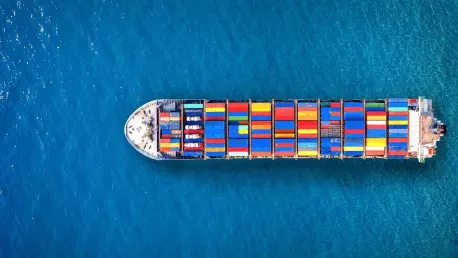The Office of the U.S. Trade Representative (USTR) announced a new policy targeting China-linked ships arriving at U.S. ports starting October 14. Vessels built in China or owned by entities connected to the country will incur fees ranging from $18 per net ton to $120 per container, with exceptions for ships carrying U.S. government cargo. This policy results from a year-long Section 301 investigation into China’s influence on logistics, maritime, and shipbuilding sectors.
The policy aims to counteract China’s dominance in maritime logistics and foster the growth of the U.S. shipbuilding industry. Vessel owners can receive up to three-year exemptions from the fees if they commission new U.S.-built ships. Ambassador Jamieson Greer emphasized the importance of ships for American economic security and addressing threats from Chinese influence on the supply chain.
Trade groups representing importers raise concerns that this policy could increase ocean rates and disrupt supply chains. Nate Herman of the American Apparel & Footwear Association suggests that higher shipping costs will reach American consumers, exacerbating financial burdens and product shortages. Herman supports strengthening the U.S. maritime industry but criticizes penalizing shippers for not using American-flagged or built vessels, which are more expensive and scarce.
Maritime analysts expect international ocean carriers to restructure their networks in response to the new policy. Chinese carriers such as COSCO Shipping and OOCL face potential fees up to $8.4 million for larger ships, prompting other carriers to potentially reroute Chinese-built ships away from U.S. trades.
The decision aligns with ongoing trade tensions between the U.S. and China. Further tariffs on logistics equipment and broader restrictions on transportation sectors are under consideration. The USTR’s approach reflects efforts to mitigate China’s impact on global trade while projecting economic and security reasoning. Despite these intentions, the policy may result in substantial adjustments for ocean carriers and higher costs for U.S. consumers, highlighting the complex balance between strategic trade measures and market realities.









